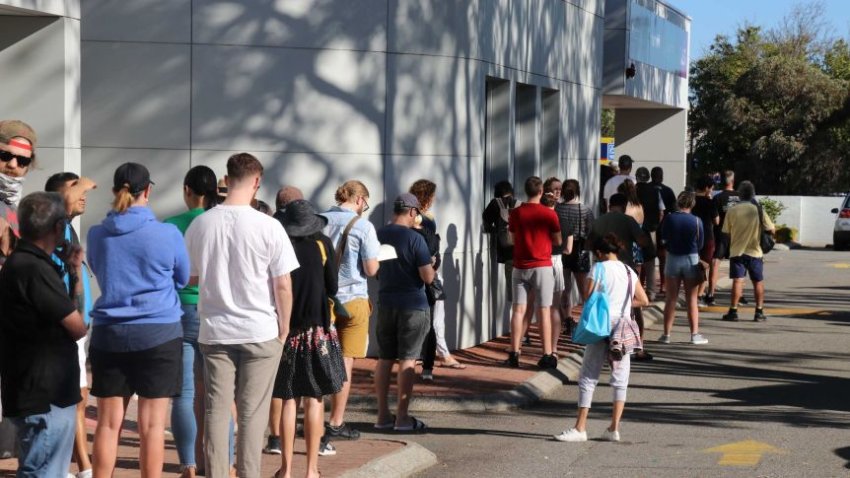
The dire economic impact of COVID-19 continues to be felt, especially in Victoria and Melbourne, which has entered its second phase of lockdown.
As jobs continue to disappear and the JobKeeper wages scheme is set to be cut, many are fearful about how they will find the rent, buy groceries and pay the bills each month.
Young people are particularly hard hit. The JobKeeper wage subsidy scheme will drop from $1500 per fortnight to $1200 from the first week of October, and $1000 from the first week of January, before ending next March.
For part-timers working fewer than 20 hours per week, JobKeeper will drop from $750 from October and $650 from January.
Data from the Consumer Policy Research Centre’s Consumers and COVID-19: from crisis to recovery, released on August 18, raised the alarm about the debt tsunami facing young people aged between 18 and 34 years.
It found that 70% are concerned about their financial wellbeing. Compared with the general population, they are three times more likely to have taken on a loan from a payday lender (short, insecure and high-interest loan) or consumer lease — commonly for cars, laptops and mobile phones — in July, leaving them open to unscrupulous dealers and exorbitantly high interest rates.
It also found that young people were the most likely to have missed payments across every household bill and, at a higher rate than the overall population.
Housing affordability remains a key concern for young people, it said. Just over half (52%) of all young renters and just under half of young people with a mortgage (45%) said they were concerned about their ability to make their July payments.
The continued lack of direct government support for young people, who are disadvantaged under neoliberal polices before the pandemic hit, means this generation faces an even tougher future.
They have grown up only knowing casualisation, high unemployment, wage theft, wages not keeping up with price rises, growing student debt and cuts to public TAFEs and universities.
It is becoming evident in the public debate over policy direction that there is a breakdown in the social compact between older and younger generations. Nowhere was this more evident than in the previous federal election and the debate over franking credits. The ABC’s Vote Compass found that a third of voters wanted franking credits to continue, even though only 8% of taxpayers receive them.
Angry baby boomers were up in arms when the John Howard-era vote-buying policy came under threat. The people who benefited from free education and enjoyed three decades of prosperity, didn’t give any thought to how a saving of around $6 billion a year could be used to help others in need.
Neoliberalism has pushed this nation from one that wanted to improve life for the next generation to one that is only concerned to look out for itself.
The younger generation will inherit the crises generated from climate change, the global financial crisis and the global pandemic. Many will have to start their careers in a depression, having used up their superannuation on trying to survive. On top of this is the threat of artificial intelligence taking uncounted jobs in the not-too-distant future.
Young people have plenty to be angry about.
[Chloe DS is part of the team working get councillor Sue Bolton reelected in the Moreland City Council. Visit the team page here.]